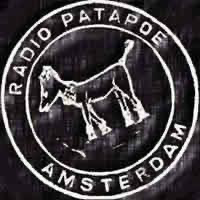One of my regrets of 2017 was, for reasons beyond my control, not getting to speak at the Yeltsin Centre in Ekaterinburg. I confess I am not the greatest fan of Yeltsin-the-Man – for all his successes bringing down the USSR and crushing some of its more unpleasant remnants, he was a destroyer rather than a creator, and as Tony Wood trenchantly demonstrates in his Russia Without Putin, in many ways Putin is an heir not just to the failures of the 1990s but also the policies. Nonetheless, the Yeltsin Centre appears committed to the best ideals of Yeltsin-the-Symbol in hosting a series of very interesting lectures, especially on the social and political processes shaping Russia and the world.
Recently the indefatigable Ekaterina Schulmann – whom every serious Russia-watcher should follow – delivered a fascinating lecture on the evolution of Russian society, and fortunately Znak has published a detailed summary of her comments. There is much in the lecture to explore and enjoy, and I will not try and do it full justice. Rather, what I want to focus on is her core point, that especially since 2014, Russia has been moving towards what Westerners might consider ‘normalcy,’ with less of the atomisation, survivalism and dependence on state institutions that has so consistently dogged Russian politics and society. In terms of the global values map reproduced below, the country is slowly but surely moving to the right.

I think she is absolutely correct, and one of the – many, many – tragedies of the current geopolitical struggle between the Kremlin and the West is that hysteria and paranoia, on both sides, have obscured all the reasons to be cheerful. The corollary that Schulmann raises is that Russia doesn’t need (indeed, should avoid) some new revolution. Ket me reproduce, in my clumsy translation (if in doubt, go to the original), some of her closing paragraphs:
We do not need to make a new revolution to improve our lives. We have a really low quality of public administration, but it is sub-standard relative to our level of social development. We are at heart a healthy society. We are an urban country: 74.4% of our fellow citizens live in cities. Our literacy rate is 99%, and more than half of the population has a higher than average education. In this sense, we are at the level of Israel and Canada. Most of our fellow citizens are not engaged in physical labour. We even have a falling prison population. We could have a political system which suits us more, life could be much better without any revolutionary upheavals. The authorities should meet society’s needs, and the society does not need mass repressions, control over public space, censorship, or bans on meetings – none of this is needed. This is just unnecessary.
…
In fact, the simple observance of the Constitution and the rolling back of the repressive measures of 2012-14 will give us, without any grand struggles and huge sacrifices, a much more responsive political system. People want to be listened to, people want political participation and competition. They want to go to rallies and not get their skulls cracked by the National Guard, they want to go to vote and see candidates who represent them on the ballots. People want a party system that meets their needs, people want a public sphere, in which they can talk about what matters to them, not the ‘crimes of the Kyiv junta’ committed some year or other.
We are closer to normal than we ourselves think. Our ideas about fears of a disastrous future are based on nothing. Apocalyptic expectations, which, of course, are also pushed by the state-run media, do not conform to reality. It does not mean from this that nothing bad could happen to us. It could – and that would be even more painful, because then there would have been no rhyme or reason, it would just have come out of the blue, and for nothing. It could have been different and it could have been much better.
Of course, saying Russia ‘just’ needs the Constitution upheld and Putin’s recent repressive counter-proto-revolutionary measures rolled back is a little like saying the economy ‘just’ needs rule of law and an end to corruption – easy to say, not so easy to do. But this is an absolutely crucial point. For all the arbitrary authoritarianism and capricious kleptocracy of the Putin years, this has coexisted with a too-often-unsung process of social development, even a still-unfinished but not insignificant degree of legalism. It may take years, it may take political generations, but the foundations for a process of democratisation, liberalisation, normalisation, Westernisation, whatever one wants to call it, are there.
And this is, of course, a challenge for the Kremlin and the upper levels of the elite whose power and privilege depends upon it. While he may not – probably does not – think of it in these terms, much of what Putin does these days is, if not to reverse this process, to obscure it. The increasingly paranoid quest for fifth, sixth (seventh?) columnists at home, the rabid and xenophobic propaganda too visible on state TV, the presentation of the world as a hostile place, committed to keeping Russia bound and subordinated, all of these are distractions. But the good news is that the very reason why the volume and pitch of these distractions is getting greater and greater is that it has at best limited impact. Russians are still organising and forming bonds of social cohesion, they are supplementing the TV’s vision of the world with one they gather on the internet or through personal experience, they pin on a St George’s ribbon on Victory Day but have no willingness to see blood and treasure expended in Syria, Venezuela and, probably, the Donbas.
A normal society and an abnormal regime. For now, the latter gets the airtime, but in the long term, the former will win out.
![]()


![]()